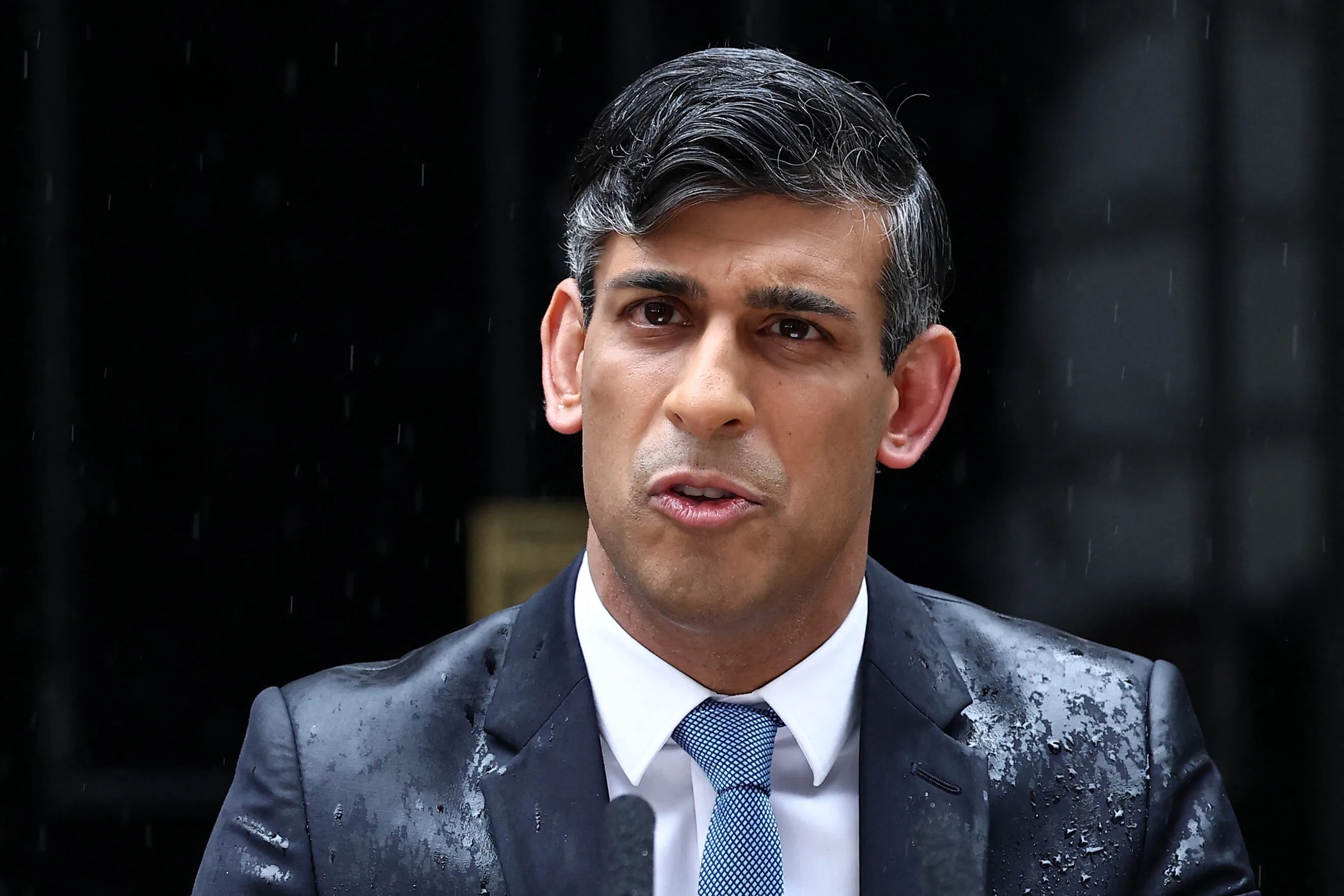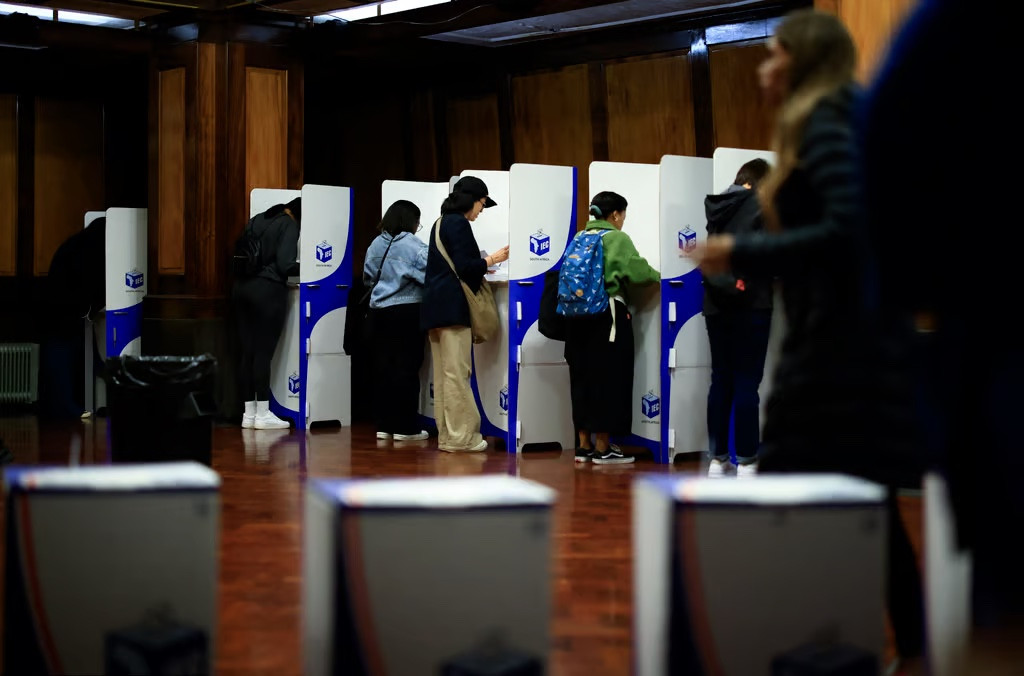UK Election: Why is Prime Minister Rishi Sunak 'pulling the trigger' now?
(Baonghean.vn) - British Prime Minister Rishi Sunak has just announced that a general election will be held next July. This information has stunned the entire UK. But what is the reason that the UK leader wants voters to go to the polls at this time?
Mr Sunak's shocking decision

According to an article in Politico, basically, before making the shocking decision to hold an unexpected general election on July 4, Chancellor Rishi Sunak and his top team had to wrestle with a lot of math.
In one sense, the equation is simple: when people receive as much bad news as the British Prime Minister has in recent months, they will take advantage of any opportunity for good fortune.
A few signs of economic light at the end of the tunnel; the passage of Mr Sunak’s long-awaited Rwanda immigration plan; the prospect of a great football tournament; and more sunshine? Mr Sunak must have felt that if he waited any longer, things might only get worse.
However, the decision, announced just after 5pm on 22 May, was a shock to Westminster and much of the country, where it was thought the prime minister would “hold out” until the autumn, so that if he lost the election, he could still comfortably go down in history as having had a respectable two years at 10 Downing Street.
Politico said this could be a risky strategy - as in opinion polls, the Conservative Party is 20 points behind the opposition Labour Party.
But with the element of surprise being one of the main advantages remaining for a British government facing a tough election, it seems Mr Sunak has decided to gamble on the assumption that the prospects of facing voters will never be better than this summer.
Except for a brief period in the early 2020s when the government was governed by a coalition, British prime ministers have always had the power to call a general election at a date of their choosing, as long as it falls within five years of the last election. This means Mr Sunak could choose a date between now and January 2025.
In January 2024, he said his “assumption” was that the next election would take place in the second half of this year. By setting the general election for July 4, he is simply meeting his own deadline.

Temptation to prolong power?
At this point, many people ask the question, why is the election date set at this time, and not October or November, as most commentators have predicted?
Indeed, the temptation for Prime Minister Sunak has always been to hang on to power and hope, however vainly, throughout his time in office that something will come along to rescue him from his poll woes.
A snap election might be seen as a rare bold move by a prime minister known for his caution. But, Politico writes, look a little deeper into the leader’s psyche and it might be seen as a sign of his realism – for the ever-rational Sunak, there seems to be no point in pinning your hopes on the illusion that a political horse might come to your rescue.
Instead of trusting his instincts, this is a prime minister who loves spreadsheets and data. On the morning of the election announcement, Britain’s Office for National Statistics announced that inflation was finally close to the all-important 2% target, and officials hailed growth as “on the upswing.”
That means the Conservatives can now go into the election with food prices and energy bills stabilising, and voters finally feeling the effects of Jeremy Hunt’s two national insurance cuts. Wages are high, unemployment is relatively low – but crucially, it’s expected to rise later this year.
And with his immigration plan finally approved, moving migrants now saves him from the embarrassment of a potential surge in small boat crossings in late summer.
Finally, there is the fact that Mr Sunak does not seem to enjoy life at 10 Downing Street. He was given an almost impossible task, moving there when his predecessor, Liz Truss, had let the economy falter.
Re-enactment of 'things'Black money?
Politico argues that the situation created a moment like “Black Wednesday” – the Wednesday in 1992 when former Conservative Prime Minister John Major oversaw Britain’s withdrawal from the Exchange Rate Mechanism, an economic and political disaster so severe that voters never trusted his government again and elected Tony Blair five years later.
Back in Mr Sunak’s case, voters, already reeling from sky-high mortgages and cost-of-living pressures during Ms Truss’s brief tenure, were reluctant to give Mr Sunak a chance, all because of his claims to have restored stability and competence to 10 Downing Street.
Then, as the months passed and the polls failed to budge, Mr Sunak earned the nickname “Feverish Rishi”, when it emerged he had asked aides why the public did not understand he was right.
With his political frustrations, life in a cramped apartment at No 10 seems less and less appealing. Especially after the couple’s personal fortune increased by £120m to £651m in the latest Sunday Times rich list. If he’s going to lose, why not lose now and look forward to a brighter future with his friends in Silicon Valley? And after all, who knows – maybe the polls are wrong?


